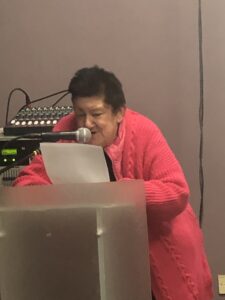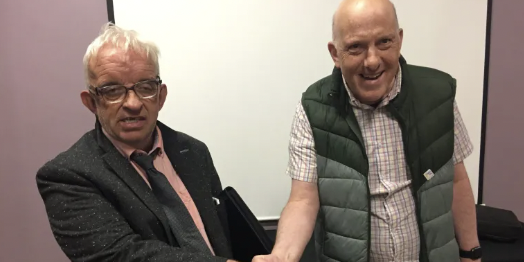TWO Clare people have been elected to key roles in an organisation that conducts research with the support and input of people with intellectual disabilities.
Brian Hogan from Tulla and Pauline Skehan from Kilrush have just been chosen as members of the Inclusive Research Network of Ireland (IRNI), which to-date has conducted important research in the areas including housing, relationships and social supports.

Both Brian and Pauline are members of the Clare Inclusive Research Group. Brian is now the national network’s new chairperson. He was formerly Chair of the Clare Leader Forum and the Brothers of Charity Clare Advocacy Platform. Pauline, an award-winning presenter with West Clare’s Raidió Corca Baiscínn (RCB), has been appointed to the role of spokesperson.
“I really enjoy research work, advocating for those without a voice, helping them tell us about their lives, encourage people to make their own decisions and choices,” said Pauline, “We recently had our ideas published in two academic journals and now we’ve been asked to write a chapter about Education and Learning in a book on the UN Convention on the Rights of People with Disability.”
Brian is also looking forward to getting to grips with his new role, “I’ve done a lot of research work,” he said. “I trained under, and then mentored, students for Professor Nancy Salmon at Limerick University’s Research Action Project. I want to make sure everyone is given time to speak and when they speak I want to make sure what they say makes a difference.”
The Clare researcher’s work with the IRNI has made a huge difference down through the years, as part of the campaign for Ireland to ratify the UN Disability Convention. The group has also worked with ministers and academics on the new legislation on Assisted Decision Making, which now has a person’s “will and preference” front and centre. It has also help to shape policy and legislation seeing on intimate relationships and intellectual disability.
“We were kept in the dark before because laws are all made so just a few people understand them,” said Brian. “I’ve said it till I’m blue in the face: it’s about us so make sure we can understand it. If it’s not accessible it’s not worth the paper it’s written on.”
A newly-formed, worldwide forum of Clare Advocates are spreading the idea of inclusion through their research work. One of their recently-published academic articles included a Manifesto for Inclusive Research. This was taken up by world disability congress organisation, when they launched their first webinar last March.
It was decided each presentation (which included inputs from Mexico, the Lebanon, the United States and Canada as well as a number of European contributors) should link their inputs to one of the elements of the Clare advocate’s manifesto.
“We were very pleased to see our manifesto so highly regarded,” said Pauline, “In the past people with disabilities were made fun of and belittled. Things are improving now. As researchers we can help give people hope and purpose.”

